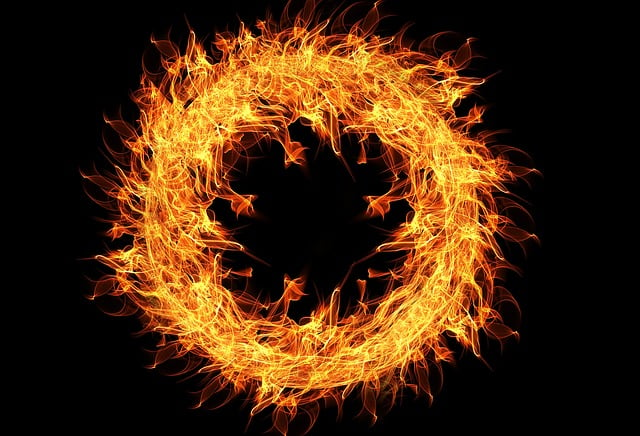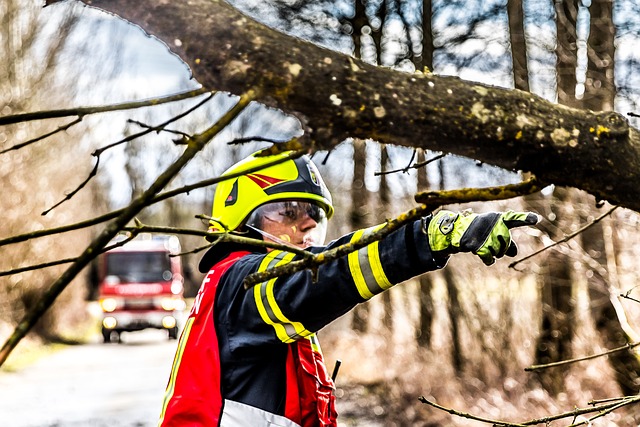In Chicago's competitive real estate market, house flipping is popular but challenging, especially with fire-damaged properties. Despite initial obstacles, experienced flippers assess, renovate, and strategically market these homes for successful flips. By adhering to local building codes, leveraging skilled contractors, and employing modern design, they transform "fixer-uppers" into desirable assets. Strategic marketing and understanding Illinois's legal requirements ensure profitable outcomes when selling fire-damaged properties in Chicago.
In the competitive Chicago real estate market, understanding house flipping dynamics, especially with fire-damaged properties, is key for success. This article delves into the intricate world of home flipping in Chicago, focusing on the unique challenges and opportunities presented by structural fires. We explore market trends post-fire, dissect legal and financial considerations, and present top strategies from specialists, offering valuable insights for navigating this lucrative yet complex segment of the industry, including how to effectively sell a house that has fire damage in Chicago.
- Understanding House Flipping in Chicago: The Basics
- Navigating Fire Damage: Challenges and Opportunities for Flippers
- Market Trends: Selling Potential After Fire in Chicago
- Legal and Financial Aspects of Fire-Damaged Property Sales
- Top Strategies from Specialists: Revitalizing and Selling Fire-Damaged Homes in Chicago
Understanding House Flipping in Chicago: The Basics
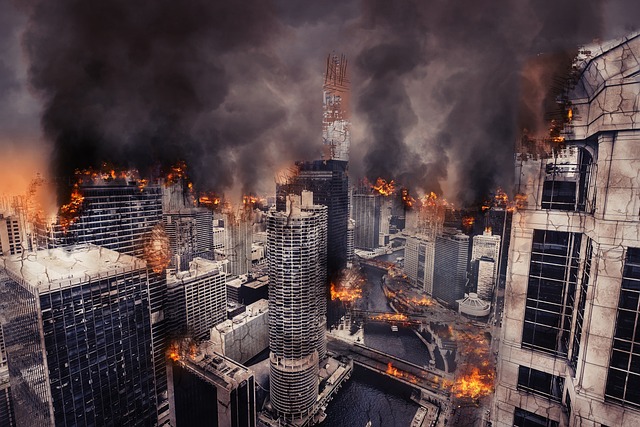
In the competitive real estate market of Chicago, house flipping has emerged as a popular strategy for investors. It involves purchasing undervalued properties, conducting renovations and improvements, and then reselling them at a higher price to make a profit. Flipping houses in Chicago offers both challenges and opportunities due to the city’s diverse neighborhoods and unique housing stock. One common concern for potential flippers is dealing with fire damage; however, it doesn’t necessarily mean a property can’t be flipped. With careful assessment, strategic repairs, and proper marketing, investors can navigate the process of selling a house that has suffered fire damage in Chicago, ensuring a successful flip.
Chicago’s real estate market demands a keen eye for detail, as every property has its own story. Fire-damaged homes require a meticulous approach, from assessing structural integrity to determining the extent of repairs needed. Investors must stay updated on local building codes and regulations related to fire restoration. Fortunately, Chicago is home to a skilled workforce of contractors and specialists who can help in these cases, ensuring that flipped properties meet the necessary standards and attract buyers willing to invest in quality renovation projects.
Navigating Fire Damage: Challenges and Opportunities for Flippers

Navigating fire damage presents unique challenges for house flipping specialists in Chicago, but it also offers opportunities to create beautiful and valuable properties. When a home suffers from fire damage, flippers must carefully assess the extent of the damage and determine the feasibility of renovation. Not all fires are created equal; some may leave behind only minor cosmetic issues, while others could have caused extensive structural damage or left hazardous remnants.
Chicago’s strict building codes and regulations further complicate matters. Flippers must ensure that any repairs meet these standards to avoid legal issues and future problems. However, with careful planning and skilled craftsmanship, fire-damaged homes can be transformed into stunning residences. By leveraging their expertise, flippers can restore these properties, increase their value, and offer prospective buyers a chance to create new memories in a safe and beautiful space—all while meeting the stringent standards of the Chicago real estate market.
Market Trends: Selling Potential After Fire in Chicago
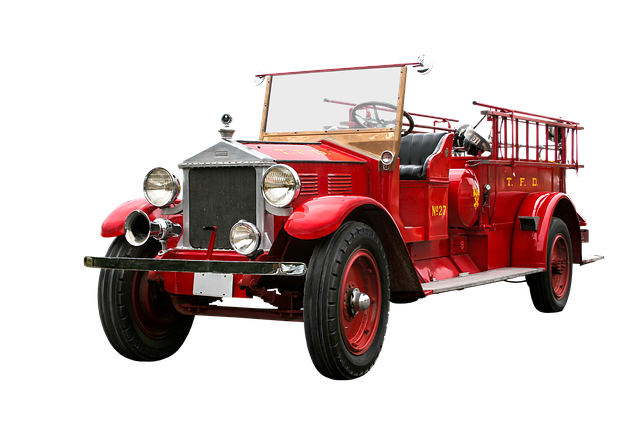
In the dynamic real estate market of Chicago, house flipping specialists navigate unique challenges and opportunities, particularly when it comes to properties affected by fire damage. While a home with fire damage might initially seem like a complex sell, experienced flippers understand that these properties can present significant potential. The key lies in assessing the extent of the damage and recognizing the vast possibilities for renovation and transformation.
Chicago’s resilient real estate market often sees a surge in demand for housing, creating a favorable environment for those who know how to capitalize on undervalued properties. After a fire, a house might be considered a “fixer-upper,” but it also offers flippers the chance to create a modern, appealing space that meets contemporary buyer preferences. With careful planning and strategic marketing, even homes that have sustained fire damage can be sold successfully, turning potential losses into lucrative flips.
Legal and Financial Aspects of Fire-Damaged Property Sales

When it comes to purchasing and flipping fire-damaged properties in Chicago, understanding the legal and financial aspects is crucial for success. In Illinois, sellers must disclose any known material defects, including fire damage, to buyers. This transparency ensures that both parties are on the same page regarding the property’s condition. Failure to do so could lead to legal repercussions later.
Financially, assessing and budgeting for repairs accurately is essential. Fire damage can be extensive, affecting structural integrity, electrical systems, and even indoor air quality. Specialized contractors who handle such issues are often required, adding to the overall cost. Flippers should factor in these expenses carefully, ensuring they don’t underestimate the impact on their profit margins when reselling a fire-damaged property in Chicago.
Top Strategies from Specialists: Revitalizing and Selling Fire-Damaged Homes in Chicago
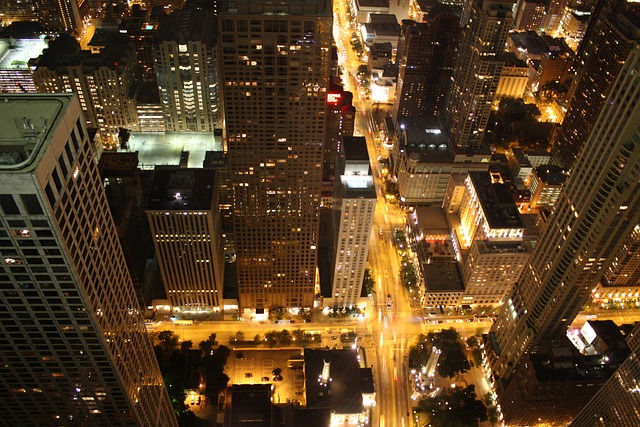
Specialists in Chicago’s house flipping industry have developed innovative strategies to revitalize and resell fire-damaged properties, addressing a unique challenge within the local market. When a home suffers from fire damage, it not only poses structural issues but also creates a significant marketing hurdle. However, these experts employ several tactics to transform these damaged properties into desirable, saleable assets.
One of their top approaches involves meticulous restoration and rebuilding efforts, ensuring every aspect meets modern safety standards and aesthetic expectations. They carefully assess the extent of the fire damage, replacing or repairing structural elements, electrical systems, and plumbing while incorporating contemporary design elements. Additionally, specialists in Chicago’s competitive market leverage digital marketing strategies to showcase these revitalized homes effectively. High-quality photography and virtual tours allow potential buyers to visualize the property’s full potential, even if they cannot physically inspect it due to ongoing renovations. This modern approach ensures that fire-damaged homes can still command a strong presence in the real estate marketplace and successfully attract interested buyers who appreciate the transformation.
In conclusion, house flipping in Chicago presents unique opportunities, especially when addressing fire-damaged properties. By understanding the market trends, navigating legal and financial aspects, and adopting effective strategies, specialists can successfully revitalize and sell these homes. Overcoming challenges like fire damage demonstrates the resilience of the industry and offers a chance to create new, desirable spaces. Whether you’re a seasoned flipper or considering entering this field, recognizing the potential in Chicago’s real estate market is key, especially when it comes to properties that have experienced fire damage. Remember, with the right approach, even seemingly daunting situations can lead to lucrative sales. So, if you’re asking yourself, “Can you sell a house that has fire damage in Chicago?” the answer is yes—with the right expertise and strategies.
